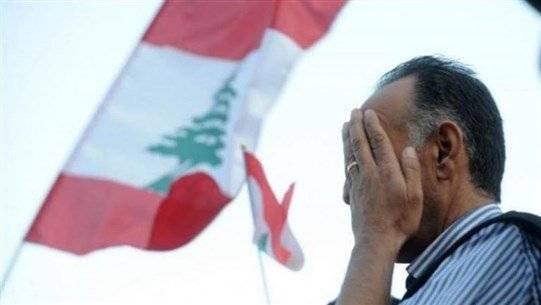Public institutions are experiencing their worst state, as the crisis, strikes, and inflation have paralyzed their operations. Obtaining any transaction now requires connections, money, and a stroke of luck, making it difficult to claim that "things are running smoothly"; rather, everyone asserts that "government agencies are completely paralyzed." The meager assistance provided to employees barely meets their needs, and salaries now equal little more than a few liters of gasoline. All of this is happening amid a strange and suspicious silence from the government, which has allowed the strike to continue without taking any action, as if it views it as a legitimate excuse to reduce the public sector workforce and clean up its map.
There is widespread resentment among employees these days, especially those who participated in the electoral process. The aid they were promised has vanished and has not reached them even now, nearly three weeks after the elections. These employees do not hide their displeasure; Ahmed states, "We’ve eaten the beating and came out with nothing," while Minerva insists that "the state exploited them to serve its needs and tossed them a bone amid the crises and confusion surrounding them."
Rima has been waiting for a message confirming her receipt of electoral assistance without success; even the transportation allowance promised to her and others in the public sector who managed the electoral process has evaporated, and she feels they were fooled. "We received neither state aid nor electoral assistance; between the two, we endured a long day and paid one and a half million for a fuel coupon from Nabatiyeh to Shouf, which consumed our thoughts," she explains. "The agreement stipulated that money was to be transferred directly after the elections, but they paid security forces and teachers, while employees were denied this as well as many of our rights."
Thus, the financial entitlements for the elections have disappeared in the cleanup of operations, and perhaps no one will receive them, as Fuad asserts, believing that "the state's lies to its employees will backfire on it." Many have fallen victim to the false promises of a state that has produced nothing but crises, prompting numerous employees to either migrate or seek other jobs.
Mohammed, a member of the security forces, has long complained about the dire situation, asking, "What does 50 dollars do these days?" He says this while standing in front of a vegetable stall on the roadside, deciding not to wait for his children to starve or get sick, and he has opted to search for additional work, like many others, to confront the storms of crises. He confirms that he is compelled to work and will not wait for the 50 dollars alone; "I sell vegetables because it has become more profitable."
Meanwhile, security officer Youssef has decided to collect cans and scrap from the trash scattered along the roads due to the terrible situation. He often repeats, "What forced you to do this but something worse,” and he feels no shame in his actions, stating, "The state did not leave us with another option; it left us to struggle alone, and we have no solution but to search in the garbage. Yes, this is how low we've gotten.”
Mohammed, a young military man, has been forced to dig with a shovel to provide milk, medicine, and diapers for his daughter, explaining, "The salary is not enough for transportation." Security personnel are now engaged in jobs they never imagined before, having lived like kings before the crisis, with all life’s conveniences provided for them. Now, they face the embers of crisis without support, finding no other solution but to work in these professions.
According to Ahmed, a gendarme, his salary does not even cover the transportation costs from his residence to his workplace in Beirut; "The fare is very expensive. Sometimes my son asks for chocolate and a bit of pocket money that I cannot provide. What can two and a half million do these days? It won't cover the bill and a little food," he adds, noting, "The biggest catastrophe awaits us when fuel prices rise; then our salary won't even cover bread and the bills."
Hundreds of people in the security forces are working under similar conditions, plowing fields, clearing weeds, digging for cans and metal in the garbage, farming, selling vegetables, and some are working on road cleanup through foreign organizations. Their circumstances are tough, and according to Ali, "The monthly assistance is not enough, and inflation is lethal around us, leaving us no option but to dig or lament our situation."
In conclusion, the harsh conditions have affected everyone in the public sector and the security forces. A single phrase accompanies everyone: "May God help us," as they await a solution from a state that is fundamentally incapable of providing solutions since it is only skilled at creating crises.




